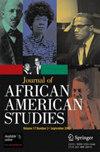保罗·罗伯逊
IF 0.5
Q3 ETHNIC STUDIES
引用次数: 8
摘要
许多知识分子将保罗·罗布森描述为20世纪美国最伟大的音乐家、学者、演员、运动员和活动家之一。罗布森于1898年4月9日出生在新泽西州的普林斯顿,是五个孩子中最小的一个。他的父亲威廉·德鲁·罗布森是一名被跑道奴役的非裔美国人,后来毕业于林肯大学(位于宾夕法尼亚州的一所历史悠久的黑人大学);母亲玛丽亚·路易莎·布斯蒂尔是一名混血的教友会教徒,同样来自宾夕法尼亚州,来自一个废奴主义者的家庭。毫无疑问,作为足球场上的运动员,在戏剧舞台上,在音乐厅里,在电影里,作为一个活动家,作为一个社会变革和正义的领导者,罗布森的名声被以各种方式记录下来。在上世纪四五十年代,他因反殖民主义的立场和对某些社会主义形式的表达而被美国政府列入黑名单,并被美国政府没收护照,这也引起了学者们的广泛关注。但大多数人不知道他出身卑微。例如,1910年,罗布森一家搬到了新泽西州的萨默维尔,这是一个位于韦斯特菲尔德和新泽西州普林斯顿之间的相对较大的城镇。保罗的父亲威廉·德鲁·罗布森牧师就是在这里担任圣托马斯AME锡安教堂的牧师,直到1918年英年早逝。年轻时,保罗是一名非常聪明的学生,就读于当地一所全是黑人的小学,并以全班第一的成绩毕业。毕业典礼上,他的父亲虽然为他感到骄傲,但似乎并没有表现出多大的热情。许多年后,罗布森回忆道:“我想……这只是他对我的期望,”而且他“从不满足于95分的成绩,而100分是可能的。”罗布森继续说,这种态度并不是因为他的“爸爸”想要完美。相反,这是他对“个人诚信”概念的信仰的标志,其中包括“人类最大限度实现”的理念。因此,罗布森宣称:“人生的成功不是用金钱和个人进步来衡量的,目标必须是最大限度地发挥自己的潜力。”这些话体现和指导了保罗·罗布森的余生,直到他1976年77岁去世。更重要的是,罗布森的哲学框架和政治行动主义可以分为四个主要领域:宗教;反殖民主义与泛非主义;音乐及戏剧表演;和人权。本文章由计算机程序翻译,如有差异,请以英文原文为准。
Paul Robeson
Many intellectuals describe Paul Robeson as one of the nation’s greatest musicians, scholars, actors, athletes, and activists of the 20th century. Born on 9 April 1898, in Princeton, New Jersey, Robeson was the youngest of five children born to William Drew Robeson, a runway enslaved African American who went on to graduate from Lincoln University, a historical black college located in Pennsylvania, and Maria Louisa Bustill, a biracial Quaker who was also from Pennsylvania and came from a family of abolitionists. Without question, Robeson’s fame as an athlete on the football field, on the theater stage, in the concert hall, in films, as an activist, and as a leader for social change and justice has been documented in a variety of ways. His being blacklisted and the seizure of his passport by the US government for his anti-colonialism stance and articulation for certain forms of socialism during the 1940s and 1950s has also received much attention from scholars. But most folks do not know about his humble beginnings. For instance, in 1910 the Robeson family moved to Somerville, New Jersey, a relatively large town located between Westfield and Princeton, New Jersey. This is where Paul’s father, Reverend William Drew Robeson, served as pastor of the St. Thomas AME Zion Church until his untimely death in 1918. As a youngster, Paul was a very bright student who attended a local all-Black elementary school, where he graduated at the head of the class. Upon his graduation, his father, although very proud of him, seemed to not show any great enthusiasm. Many years later Robeson recalled, “I guess . . . it was only what he expected of me,” and that he “was never satisfied with a school mark of 95 when 100 was possible.” This attitude, Robeson, continued, was not because his “Pop” wanted perfection. It was rather a sign of his belief in the concept of “personal integrity,” which included the idea of “maximum human fulfillment.” Thus, Robeson proclaimed that “success in life was not to be measured in terms of money and personal advancement, but rather the goal must be the richest and highest development of one’s own potential.” These words embodied and directed the rest of the life of Paul Robeson until his death in 1976, at the age of seventy-seven. More importantly, Robeson’s philosophical framework and political activism can be divided into four main areas: Religion; Anti-colonialism and Pan-Africanism; Music and Theater Performances; and Human Rights.
求助全文
通过发布文献求助,成功后即可免费获取论文全文。
去求助
来源期刊

Journal of African American Studies
ETHNIC STUDIES-
CiteScore
0.80
自引率
0.00%
发文量
30
期刊介绍:
The Journal of African American Studies publishes original research on topics of professional and disciplinary concern for the social progress of people of African descent. This includes subjects concerning social transformations that impact the life chances of continental Africans and the African diaspora. Papers may be empirical, methodological, or theoretical; including literary criticism. In addition to original research, the journal publishes book reviews, commentaries, research notes, and occasional special thematic issues. African American Studies is an interdisciplinary field; diverse disciplinary methods and perspectives that include anthropology, art, economics, law, literature, management science, political science, psychology, sociology, social policy research, and others are appreciated.
 求助内容:
求助内容: 应助结果提醒方式:
应助结果提醒方式:


